Gamdias Hermes Gaming Keyboard Review
Peter Donnell / 10 years ago
Performance
Gamdias have packed their Hermes keyboard full of features, and to really take advantage of this you need to download their Hera software. This software is designed to manage all your Gamdias peripherals and when it auto-detects one is connected it prompts you to download the required plug-in to manage that device.
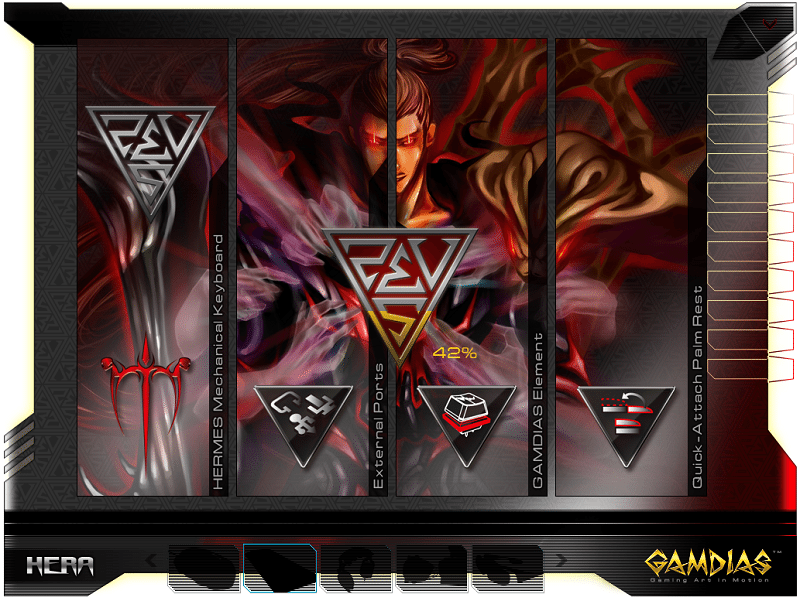
The first tab if for managing individual key assignments and profiles, there are ten profiles, each with profile match, hotkey switching, and triggers that can enable sounds and timers.
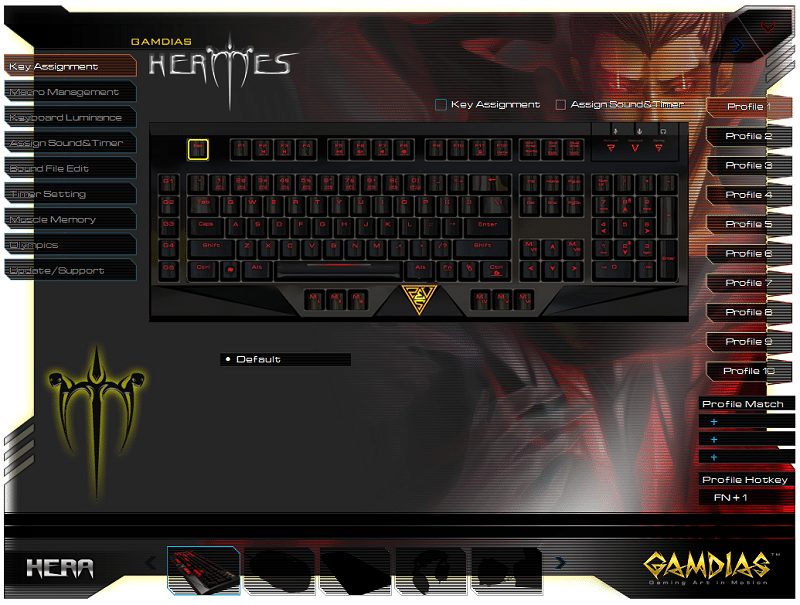
The macro features are stunning. Whilst you can record a quick macro on the fly from the keyboard, you can get really complex in the editor where you can change trigger rate, delays, keyboard and mouse commands, text relays and a whole lot more. Each can be saved to folders, grouped and set to trigger on the keys of your choosing or by timer over each of the ten profiles.
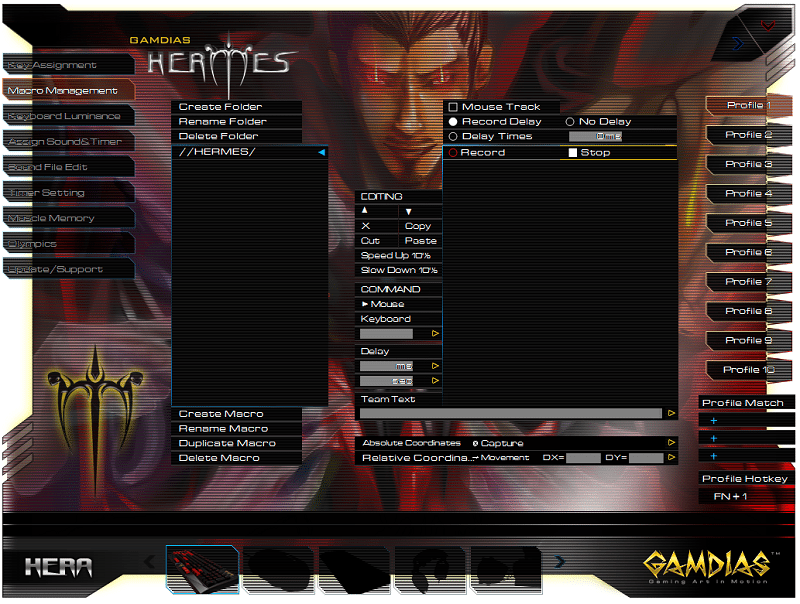
Next we have the luminance settings for the back-light, it’s pretty straight forward with fives levels of brightness ranging from off to maximum, with the final option being a breathing effect.
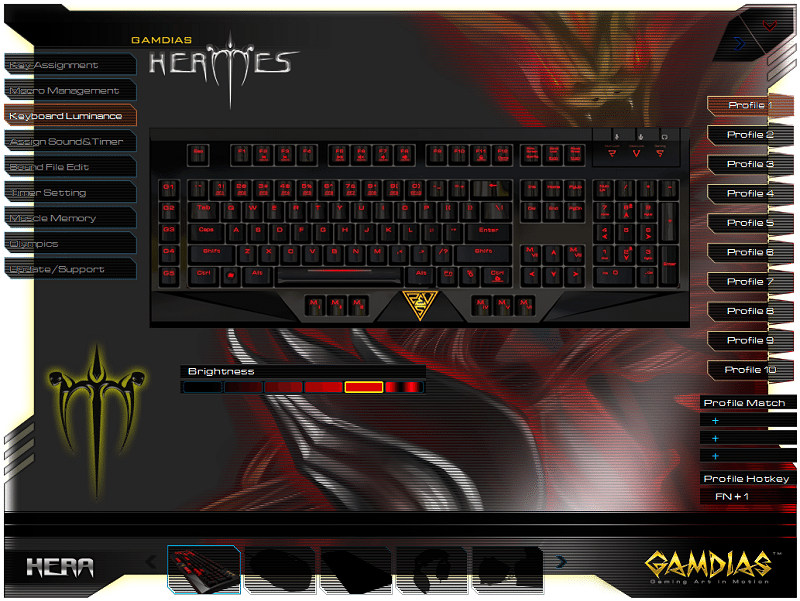
Sound and time can trigger notifications for you that let you know when your macros are done, perfect for giving you an audio cue when your spell is ready to be re-cast and it can be configured to play through your speakers or headset only.
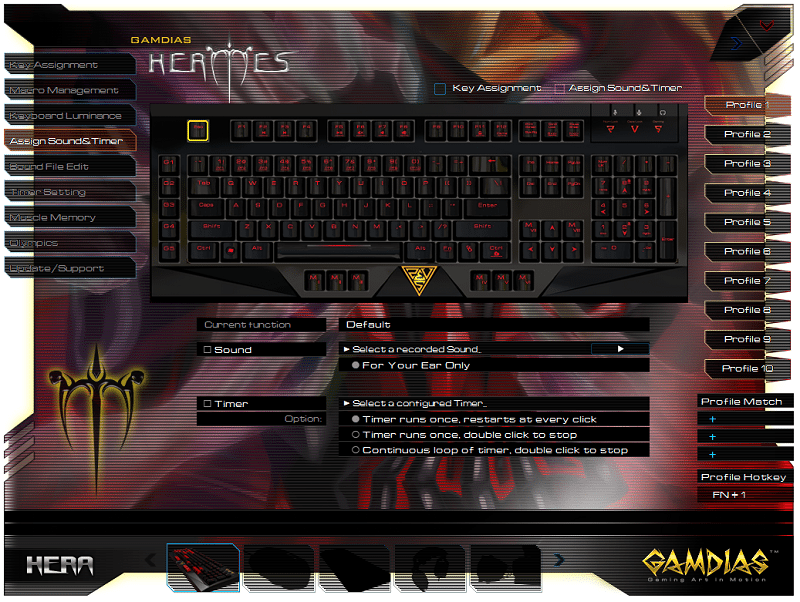
Sound file edit allows you to record custom notification sounds for the timers and macro triggers.
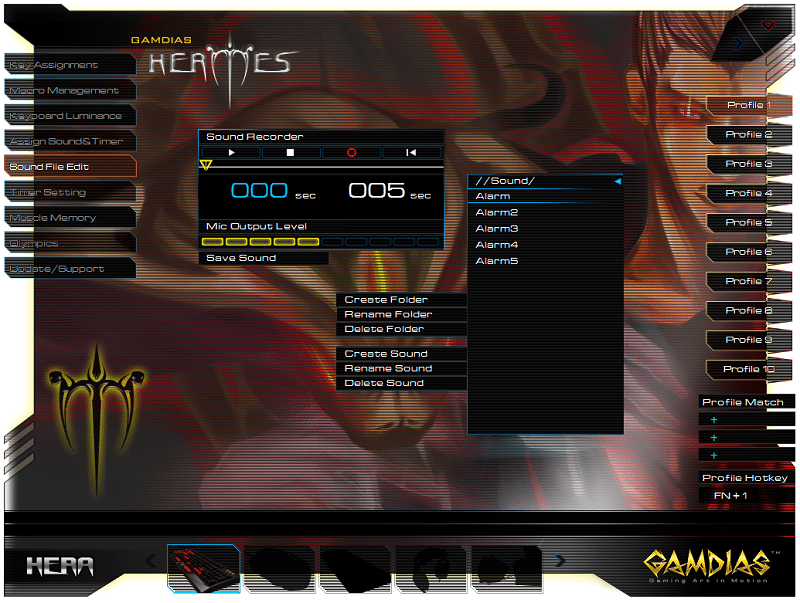
Time settings are just as customisable as the macros, with delays, on-screen display overlays with customisable text, customisable sounds, each is once again configurable to macros, keys and profiles.
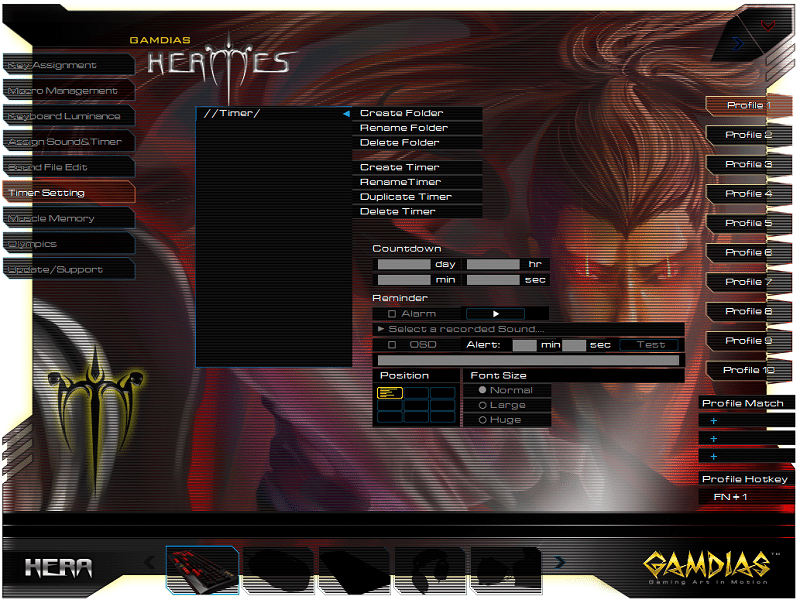
Muscle memory is great for tracking your use of the keyboard, only hardcore players will likely use this, but its great to see which keys you use the most as you can better tune your macros to streamline certain comments you didn’t realise you used so often.
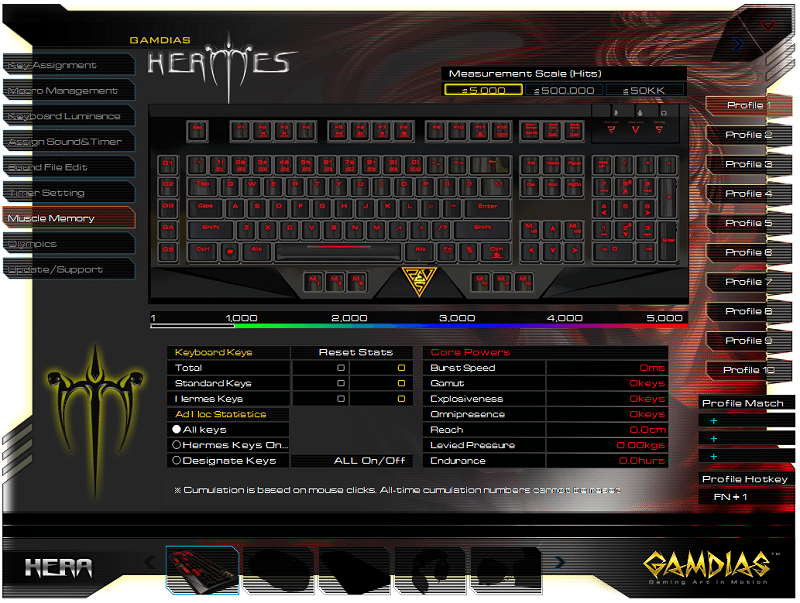
Finally we have the update tab which lets you know which firmware the keyboard is running.
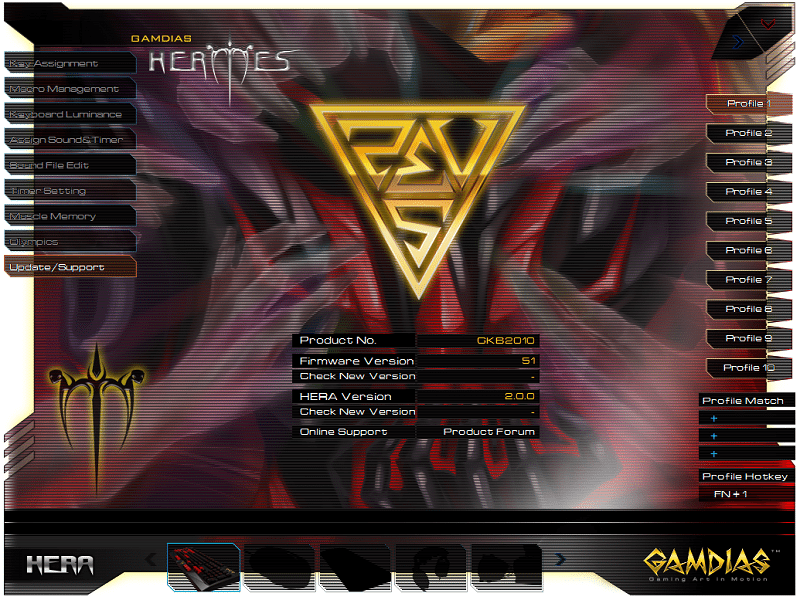
MX Blue switches are often quite loud, but the Hermes does a great job of dampening this a little without robbing you of that lush tactile click you get from the switch. The keys are raised just enough so they don’t bottom out on the keyboard chassis and this means the Hermes is the quietest MX Blue keyboard I’ve ever tested.
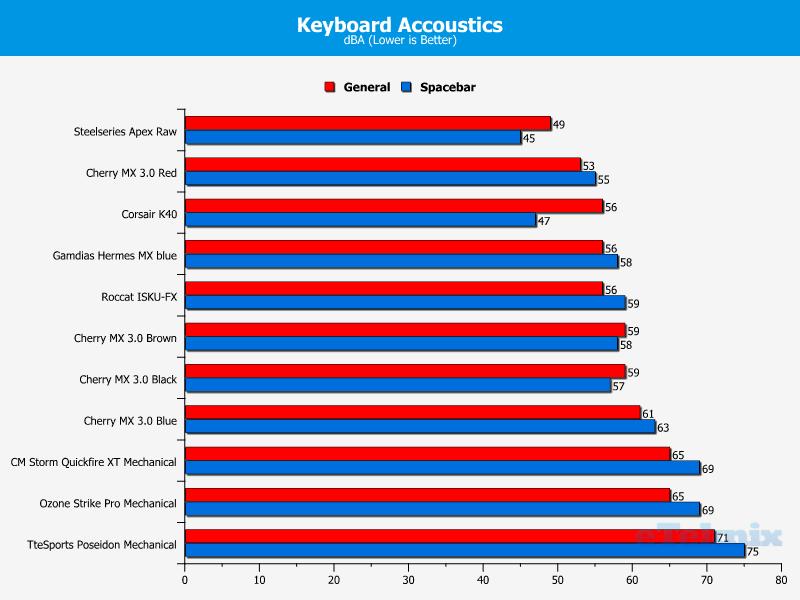
Gaming on the Hermes is nothing short of freaking awesome, I could pretty much leave my review at that. Out of the box performance is great for anything from Battlefield to League of Legends and the quality you get with MX Blue switches means you get responsive control 100% of the time. However, spend a couple of hours in the software and set this keyboard up for each of your games and you’ll really start to reap the rewards; with macro timers, sound notifications, OSD notifications and a whole lot more you can really streamline your gameplay, something that really reaps its own rewards in demanding titles such as StarCraft II. It can be a little overwhelming dealing with this many settings, and you do need time to adjust to the extra six macro keys below the space bar, but its worth the effort in the long run.
Working on the Hermes is a joy too, it’s a high-end mechanical keyboard with a huge wrist rest. Overall I’ve been able to use this for a few days and type my heart out without any issues and this may be one of the coolest mechanical keyboard I’ve ever had the pleasure of working on.



















